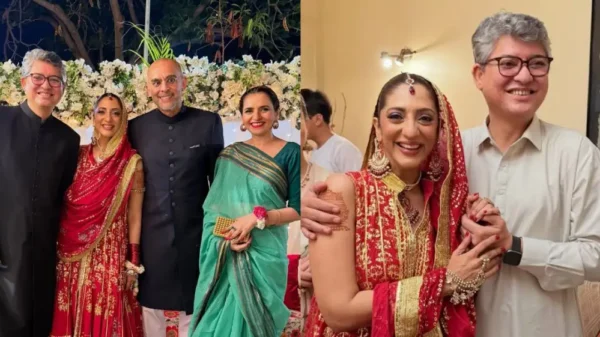Amritpal Singh
‘Waris de Punjab’ chief Amritpal Singh, currently imprisoned in Assam’s Dibrugarh jail under the National Security Act, has won the Punjab’s Khadoor Sahib Lok Sabha seat. Singh, running as an independent candidate, defeated Congress’s Kulbir Singh Zira by a significant margin of over 1.5 lakh votes.
Amritpal Singh, a prominent Sikh separatist leader, participated in the election despite being incarcerated following his demand for a separate state for Sikhs.
His electoral victory is seen as a powerful message from the electorate, reflecting widespread discontent over what his supporters describe as the “injustice” of his detention.
At 31, Singh remains confined in a high-security prison in Assam, located nearly 3,000 km (1,900 miles) away from his constituency in Khadoor Sahib, Punjab. His triumph in the election, with over 400,000 votes, underscores the significant support he has garnered despite the distance and his imprisonment.
Last year, Singh publicly supported the creation of an independent Sikh homeland in Punjab. This declaration comes decades after a violent insurgency in the 1970s and 1980s that resulted in the deaths of tens of thousands before being forcibly subdued.
The issue of Sikh separatism has recently returned to global attention, with Canada and the United States accusing India of involvement in assassination plots against Sikh separatists abroad—allegations that New Delhi has denied.
Amritpal Singh’s lawyer, Imaan Singh Khara, highlighted the public’s overwhelming support as a stand against perceived injustice. “People have given such a huge victory in his favour to tackle the injustice he faces,” Khara said. Singh’s father, Tarsem, expressed hope for his son’s release, stating, “We will try to meet him in prison in the coming days and wish that he is also freed soon.”
The phenomenon of Sikh separatists participating in Indian elections is not unprecedented, but Singh’s case is particularly notable given the circumstances of his arrest.
He was detained last year under stringent security laws after leading hundreds of supporters in a storming of a police station, armed with swords and firearms, demanding the release of an aide.
Singh’s movement, according to his supporters, is focused on adherence to religious teachings and addressing the rampant issue of drug use among Punjabi youth. While Sikhs form the majority in Punjab, they make up only 2% of India’s 1.4 billion population, which is predominantly Hindu.
Singh’s campaign worker, Karamjit Singh Sunam, emphasized that the movement is multifaceted, capable of both militant and democratic engagement. “People who take up arms also know how to hold discussions and participate in democracy,” Sunam remarked.
The historical context of Sikh separatism includes the assassination of Indian Prime Minister Indira Gandhi in 1984 by her Sikh bodyguards.
This was a direct response to her controversial decision to send the army into the Golden Temple, Sikhism’s holiest site, to flush out militants.
Singh’s electoral success amid such a charged backdrop signals a complex and ongoing dialogue within India’s democracy regarding separatist movements and the state’s response to them.










